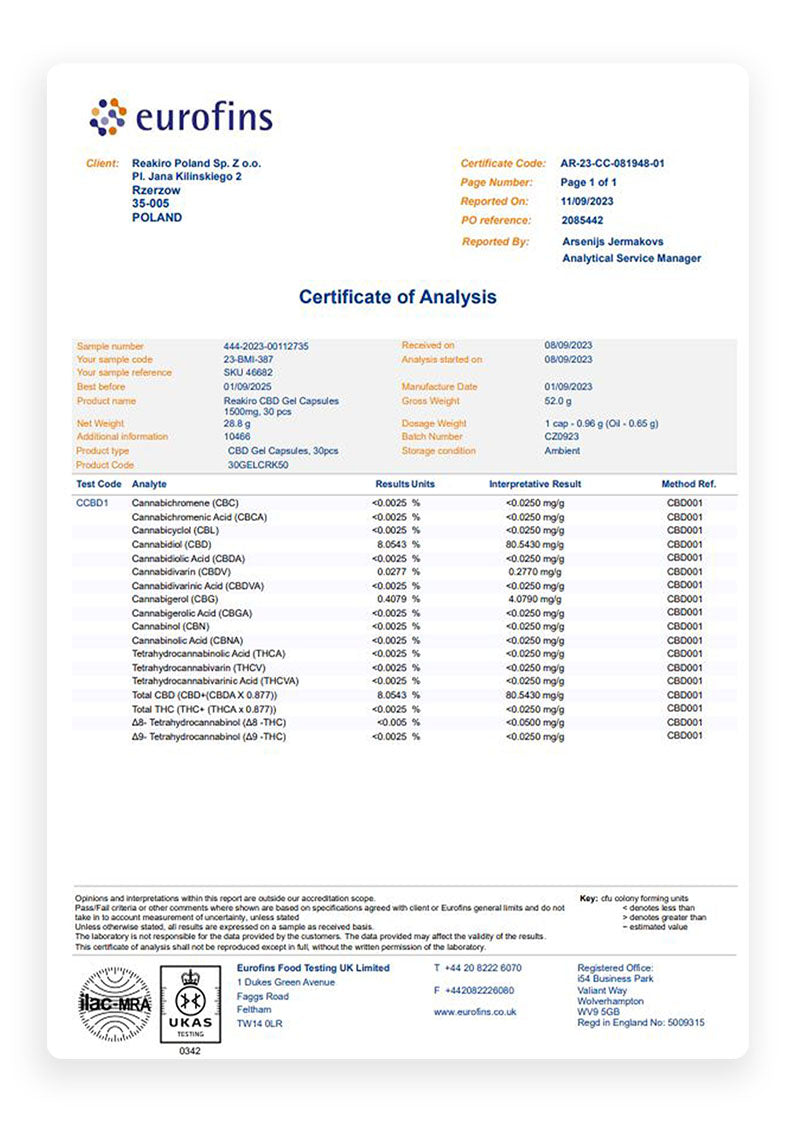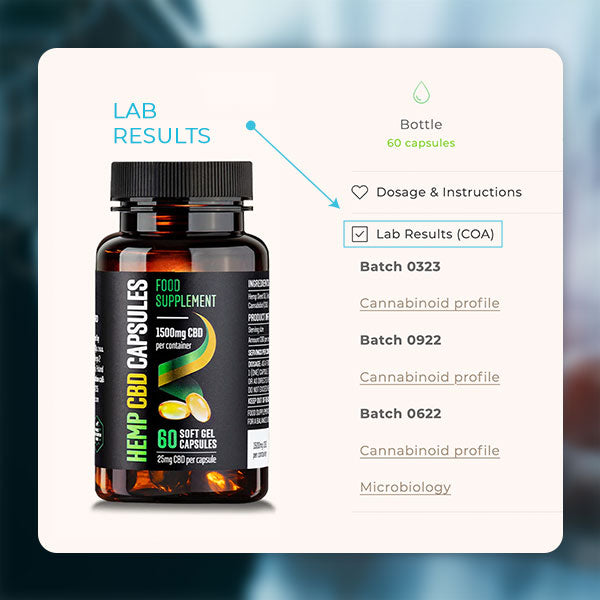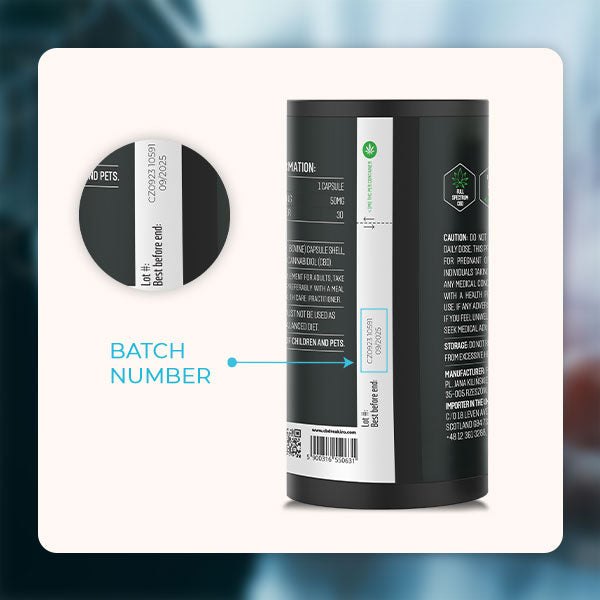
Certificate of Analysis (COA) by Reakiro - Ensuring Quality Control and Rigorous Testing
Reakiro's extensive range of full and broad-spectrum CBD products originates from the finest industrial hemp cultivated within the EU. These products undergo thorough testing through independent third-party laboratories to substantiate our assessments. Aligned with our core values of transparency and trust, we consider sharing our lab results and analysis certificates an integral aspect of your product selection process.

Comprehensive Testing for Uncompromised Quality
Especially when incorporating a product into your daily routine, understanding its performance is paramount. To instill confidence and uphold impeccable standards, every batch's every stage is meticulously evaluated by third-party laboratories to guarantee excellence, purity, and safety throughout production. We subject our products to rigorous testing in controlled environments to eliminate any compromise on quality.

Elevated Laboratory Standards and Thorough Evaluations
The laboratories we collaborate with adhere to the highest industry benchmarks, ensuring equipped and maintained facilities. Additionally, they undergo both internal and external assessments, ensuring the absence of genetically modified components, pesticides, and chemical fertilizers.
-

How to find your batch number on the package?
In our Reakiro product range, you can locate the batch number on the outer packaging enclosing the CBD oil or capsules. Identify a small white sticker resembling the image above, showcasing the product's batch number and expiration date.
-

How to find lab results on the website?
Explore the CBD products and choose the one you're interested in. Click on the product to access its detailed information page, open the tab "Lab Report (COA)" and check your batch number.
-

Still have a question?
Send us your questions through our Contact Us form— we’d love to help!
Exploring the Nutritional Analysis and Safety Measures of CBD Products
Discover the detailed insights into our CBD products through the Certificate of Analysis (COA). This report provides a comprehensive overview of the following crucial aspects:
-
Certificate of Analysis (COA)
Our initial laboratory report provides an accurate measurement of cannabinoids present in each product. Our testing covers THCa, THC, CBC, CBG, CBN, CBDa, and CBD. While our primary focus is on ensuring a high potency of CBD, which is essential for legal, full-spectrum CBD product classification, we also recognize the significance of the entourage effect. This effect is enhanced when CBD is combined with other cannabinoids, creating a synergistic quality.
-
Microbial Analysis
Our next mandatory analysis is making sure there are no possible microbial contaminants which could be ingested to assure the safety and purity of the cannabis. We test for e.coli, molds, yeasts, and salmonella.
-
CPSR Report
Skincare is among the most prominent sectors in the current market, flooded with a continuous influx of new products intended to enhance skin health. Unfortunately, not all of these products deliver on their promises, and some even cause harm. Our foremost priority is to offer safe products that accurately display the CBD content stated on the packaging.
We conduct a comprehensive testing process covering CBDv, CBVA, CBG, CBD, THCV, CBDA, CBGA, CBN, Δ9-THC, Δ8-THC, THCVA, CBC, THCA, and CBCA. Certain products, such as our mask creams, incorporate full-spectrum CBD, facilitating the entourage effect which maximizes CBD's effectiveness. Other items are meticulously crafted to target muscle soreness, containing 0% THC.
-
Heavy Metal Analysis
Our third essential test involves the examination of heavy metal content in our CBD oil. While heavy metals are naturally occurring elements present in Earth's soil, exposure to them is inevitable. However, certain more hazardous metals, such as lead, arsenic, cadmium, and mercury, can exist in high concentrations in the soil. Cannabis cultivated in these areas can absorb these contaminants, and products intended for therapeutic use might then pose risks for individuals with existing medical conditions. Prioritizing health and safety, we conduct tests specifically for detrimental metals: arsenic, mercury, lead, and cadmium.






